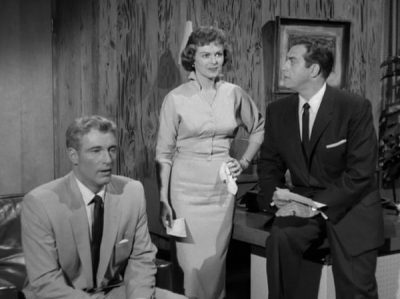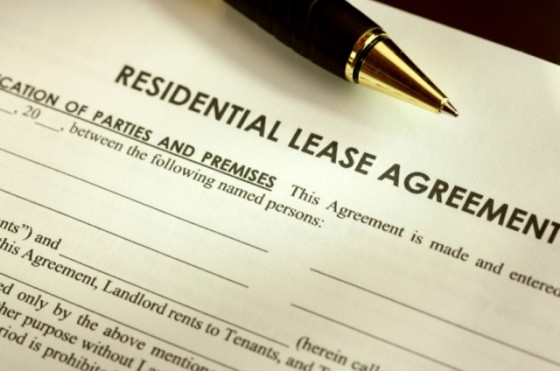
Legal My Landlord To Change The Terms Of My Lease After 12 Years?
Legal My Landlord To Change The Terms Of My Lease After 12 Years?
Readers: This is a question I received last night with a plea for a quick response, as the reader has to answer his landlord in the next few days. While this reader got lucky, I rarely can answer your questions here in a time sensitive manner. If you have a problem that requires an immediate or near-immediate response, go to the San Francisco Tenants Union and buy a membership, it’s the best 45 bucks you’ll ever spend. Be sure to bring all of your relevant documents.
I live in San Francisco CA in a rent controlled apartment.
My lease renewal contains a provision that requires me to pay 2000 dollars as a fine for an early termination of the lease. The original lease, I’ve lived in the apartment for 12 years, states 300 dollars as a penalty for early termination. Can the landlord make this change in the penalty amount? The agent representing the owner asked me for documentation if in indeed the law stipulates he cannot. Can you help find it?
Another provision added to the new lease is a requirement of rental insurance. I feel it’s a good thing and I don’t a problem getting one. I wonder however if the landlord can indeed add new provisions and requirement to a renewal of a yearly lease agreement first signed 12 years ago. I’d greatly appreciate it if you can answer these questions for me for I feel at loss when looking at my lease renewal as I don’t know whether I should sign it or not.
I tried to talk it over with the agent representing my landlord but his words were “that is not negotiable”.
In my column, A Just Cause Eviction Does Not Mean “Just ‘Cause Your Landlord Said So,” I point out that tenants who live in rent-controlled tenancies do not have to move unless they are evicted with just cause.
If you reread Tenant Troubles: Can I Refuse to Sign A Lease, you will see that there is an argument that you can, ostensibly, be evicted for refusing to sign a new lease with the new early termination fee. Rent Ordinance §37.9(a)(5) provides that a tenant can be evicted if
The tenant, who had an oral or written agreement with the landlord which has terminated, has refused after written request or demand by the landlord to execute a written extension or renewal thereof for a further term of like duration and under such terms which are materially the same as in the previous agreement; provided, that such terms do not conflict with any of the provisions of this Chapter.
However, Rent Board Rules and Regulations §12.20 states:
Notwithstanding any change in the terms of a tenancy pursuant to Civil Code Section 827, a tenant may not be evicted for violation of a covenant or obligation that was not included in the tenant’s rental agreement at the inception of the tenancy unless: (1) the change in the terms of the tenancy is authorized by the Rent Ordinance or required by federal, state or local law; or (2) the change in the terms of the tenancy was accepted in writing by the tenant after receipt of written notice from the landlord that the tenant need not accept such new term as part of the rental agreement.
So you have to look at the new early termination fee clause and ask yourself, 1) Is this a material change? and 2) Can the landlord evict me if I don’t pay the new fee?
The clause certainly seems material. After all, it increases the original fee from $300 to $2000. But the landlord can’t evict you because, presumably, you’ve either given notice to vacate or you’ve already moved out. The key here is to look at the clause and determine when the payment would be due. If that has changed in the new lease, meaning if there is some new requirement to pay the fee before you move, you can comfortably tell the landlord, through his barely competent agent, to stick that clause in his orifice most closely evolved to receive it.
If the language for payment is the same as the original lease, consider that this may not be a battle worth fighting now, because if and when the landlord sues you for the fee later on down the line, you can use Rule §12.20 to bolster your argument in small claims court that you don’t have to pay it. You can also make the argument that the fee isn’t warranted as a “liquidated damages” fee.
If you apply this analysis to the new requirement to buy insurance, you can use the same logic as did the court in NIVO 1 LLC v. Antunez (2013) 217 Cal.App.4th Supp. 1, 159 when it found: 1) Rent stabilization ordinance prohibited change of terms to deem any breach a material breach, and 2) Evidence was sufficient to support finding that failure to maintain insurance as an immaterial or trivial breach.
It is clear and supported by case law that the insurance requirement can be defeated in court. I suggest you print out the case and roll it up nice and tight.
Landlords think they’re so clever when they design new tenancy requirements to harass their long-term rent-controlled tenants. You know the real reason the landlord is fucking with you. He wants to get rid of you so he can charge $12,000.00 a month for your one-bedroom apartment. Don’t let him do it.






 This is a dance you probably shouldn't try to do by yourself. Almost all tenants need a lawyer to lead. You likely have a better chance buying a house than you do prevailing in an unlawful detainer by defending yourself.
This is a dance you probably shouldn't try to do by yourself. Almost all tenants need a lawyer to lead. You likely have a better chance buying a house than you do prevailing in an unlawful detainer by defending yourself.




 The Costa Hawkins Rent Housing Act, a bi-partisan law enacted in 1995 by the band of pandering griftocrats we call our state legislators, that eviscerated local rent control.
The Costa Hawkins Rent Housing Act, a bi-partisan law enacted in 1995 by the band of pandering griftocrats we call our state legislators, that eviscerated local rent control.